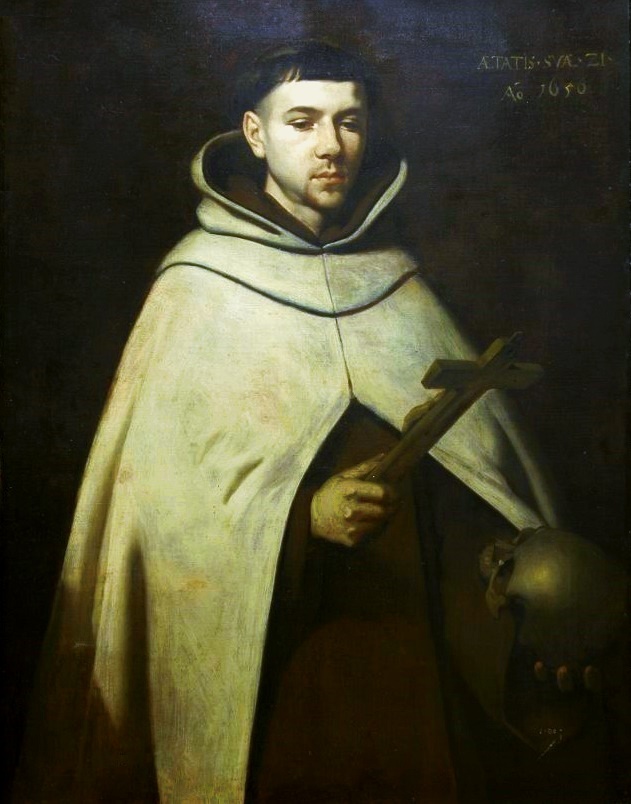Please follow along, as I read this quotation: “When I am spiritually healthy, nothing bothers me… When I am spiritually healthy my wife can take forever to get ready, the stock market can drop a thousand points in a day, the flight can be canceled, my favorite team can lose, and my plans can fall apart, but I am able to remain calm and maintain a joyful outlook with a deep inner peace… When I am not [spiritually healthy], even the smallest things drive me crazy… My attitude toward other drivers on the roads… is a pretty good barometer of how healthy I am… Someone around me at work or at home could do the smallest irritating thing and that will be enough to get me all twisted up inside” (Matthew Kelly, The Four Signs of a Dynamic Catholic, 41).
One cause of spiritual health is our gratefulness to God the Father. The more grateful we are to Him, the happier we are. Gratitude and happiness are proportionate. If we’re happy right now, it’s likely we’re also grateful. If we’re having a hard day, then think: Are we struggling with gratitude?
This is the Second Reading in full. It’s actually one long sentence in the original Greek. It begins with the words, “Blessed be the God and Father…” which is the standard beginning of a Jewish prayer called the Berakah, which thanks God for His blessings. The first quality to note is Whom St. Paul thanks. He refers to the ‘Father’ 16 times, to Jesus Christ 15 times, and to the Holy Spirit once (Blessed be the God and Father of our Lord Jesus Christ, who has blessed us in Christ with every spiritual blessing in the heavenly places, just as he chose us in Christ before the foundation of the world to be holy and blameless before him in love. He destined us for adoption as his children through Jesus Christ, according to the good pleasure of his will, to the praise of his glorious grace that he freely bestowed on us in the Beloved. In him we have redemption through his blood, the forgiveness of our trespasses, according to the riches of his grace that he lavished on us. With all wisdom and insight he has made known to us the mystery of his will, according to his good pleasure that he set forth in Christ, as a plan for the fullness of time, to gather up all things in him, things in heaven and things on earth. In Christ we have also obtained an inheritance, having been destined according to the purpose of him who accomplishes all things according to his counsel and will, so that we, who were the first to set our hope on Christ, might live for the praise of his glory. In him you also, when you had heard the word of truth, the gospel of your salvation, and had believed in him, were marked with the seal of the promised Holy Spirit; this is the pledge of our inheritance toward redemption as God’s own people, to the praise of his glory.).
For years, I’ve known that there was a difference between being grateful in general and being grateful to Jesus, but I could never explain how. Christians would talk about an attitude of gratitude, which is good, but wouldn’t mention Jesus’ name, so I knew something was off. How, for instance, can we be thankful for our life, home, and education without thanking our parents by name? Then I found the answer in a book, which said that being grateful in general focuses on what we’ve been given, whereas being grateful to Jesus focuses on Who’s given it. Being grateful is focused on ourselves and what we’ve received, whereas gratitude to Jesus is focused on the Person Who loves us—that’s better because it’s always better to know that someone loves us (Fr. Robert Spitzer, Finding True Happiness, 272), rather than receiving an anonymous gift.
The second quality to note is the content of St. Paul’s gratitude. When I wake up in the morning, I talk to Jesus right away, but I tend to thank Him for His love and for a good or bad sleep, but St. Paul here focuses on seven spiritual blessings:
1) Before creation, God the Father chose us to be holy.
2) He destined us in love to be His adopted children through a relationship with Jesus.
3) Through Jesus’ death, we have received forgiveness for all our sins.
4) The Father has revealed His previously hidden plan to unite all of creation under Jesus.
5) Through Jesus, Jewish believers have entered into their inheritance.
6) Non-Jewish believers in Jesus have also received the Holy Spirit.
7) The Holy Spirit is the pledge of a greater inheritance to come (Peter Williamson, Ephesians in Catholic Commentary on Sacred Scripture, 44).
If we were to understand and then thank the Trinity for these blessings each morning, we would be qualitatively happier.
I recently ran into a Catholic who’s a good man but not fully following Jesus right now; he’s no longer coming to Mass. He’s still a part of our St. Anthony’s family but is struggling. When we talked, he told me he’s grateful for many things, for life, nature, being a good person, his family. Then I asked, ‘What about Jesus? Nature never died for you.’ He said, ‘Yeah. I guess I’m being selfish.’ I said, ‘Don’t focus on yourself. Focus on Jesus. He died and rose for you, and is waiting for you in the Eucharist.’
One reason he’s no longer coming is because some people here treated him badly—that made me think. What would it take to get us away from Jesus in the Eucharist? If we were to lose our job, would we stay away from Mass? If our child were to die, would we stop following Jesus’ commands? What would it take for you to stop following Jesus? For that man, it was enough for someone to be unkind to him to get him away from the Eucharist.
With God’s grace, with our prayers and love, we can help this brother come back, and we ourselves can be so spiritually healthy that nothing will ever take us away from Jesus. The key is to focus on Jesus and what He’s done for us.
Third, three times in this letter St. Paul refers to his imprisonment. That’s amazing: He’s in prison and still thankful to Jesus. And he’s not just looking on the bright side. I hate looking on the bright side, as when you lose your job and someone says, ‘Well, at least you can sleep in now.’ I want to look on the real side. ‘I lost my job, but Jesus has a plan for me’—that’s helpful because it’s real.
Now, here’s some good and bad news regarding our Parish Centre. The bad news is that we’re a month behind schedule: We planned on getting our Development Permit last month. But this has zero effect on our relationship with Jesus, am I right? There is no way we’re going to let bad circumstances affect our relationship with Jesus. The good news is that the City of Vancouver granted us the Development Permit yesterday.
So, our first response should be gratitude, not in general, but to the Father. Let’s offer this prayer together: ‘Heavenly Father, we give You all praise and glory! We have learned through these years that without You, we can do nothing. You know our great need for a parish centre, in order that we can fulfill Your mission of making disciples for Christ. Thank You for granting us the City’s approval of our application. More importantly, thank You for granting us every spiritual blessing through Christ in the Holy Spirit, and, thank you, Mother Mary, for your prayers. Amen.’
At the beginning of our Sabbath Summer, please consider doing two things: 1) When you pray, thank the Father, Jesus, and the Holy Spirit by name, not just God in general. Now, if we’re not thankful to Them, don’t force it. However, if we are, then use Their names.
2) Here’s a rule: You’re not allowed to thank Them for health, family, the weather, or nature until you’ve thanked them for spiritual blessings, like the Father’s love for us, Jesus’ dying and rising for us, and the gift of the Holy Spirit.
In 1577, St. John of the Cross was thrown into prison for nine months by Carmelite friars, and whipped, beaten, and malnourished. One day, the superior visited and woke him up by nudging him with his foot. St. John apologized for having no strength to get up when he entered. The superior then asked what he was thinking about, and St. John replied, “I was thinking that it is Our Lady’s feast tomorrow, and what a happiness it would be to say Mass” (Fr. Vincent O’Malley, Ordinary Suffering of Extraordinary Saints, 138).
When we’re spiritually healthy, nothing bothers us. Happiness is always proportionate to gratitude, and it’s always much better to be grateful to the Person, Jesus, Who loves us.

